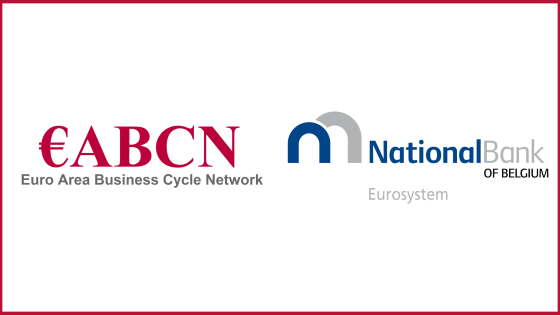

Search the site

Euro Area Business Cycle Network Training School 'The Macroeconomics of Complementarities' Taught by Franck Portier (University College London and CEPR)
Hosted by the National Bank of Belgium
4-6 September 2023
Deadline to Apply Extended: 23:59 (Uk Time) 6th August 2023
General description:
We are pleased to announce details of the latest EABCN Training School; a three-day course entitled “The Macroeconomics of Complementarities”. Professor Franck Portier (UCL and CEPR) will teach the course. It is primarily aimed at participants in the Euro Area Business Cycle Network but applications will also be considered from doctoral students, post-doctoral researchers, and economists working in central banks and government institutions outside of the network, as well as commercial organisations (fees are applicable for non-network non-academic organisations).
Tentative course description and outline:
A pervasive problem in micro-econometrics is the presence of unobserved heterogeneity. The main aspect of reality that macroeconomists shall understand is observed homogeneity. Why do all sectors of the economy lay off workers at the same time? Why do consumers all stop buying cars at the same time? Why can, in some circumstances, government spending increase both public and private demand — what macroeconomists refer to as a multiplier effect?
In a Walrasian world, price adjustments imply substitutability and hence stabilisation: if someone suddenly craves for apples, the price of apple will go up and everyone else will consume less apples; hence contributing to stabilising price and quantity of apples. Complementarity between agents’ actions can overturn that stabilizing property and create cyclical fluctuations (cyclical means that a boom is endogenously followed by a recession, not by a soft landing).
The course will explore the implications for theory and empirics of building dynamic general equilibrium models with accumulation in which complementarities are dominant. Complementarities can be hardwired into production structures, but also and perhaps more interestingly generated from market interactions.
I will attack the issue on three fronts: empirical, theoretical and quantitative. The empirical part will include the typical pattern of a recession; evidence of cyclicality in the frequency domain, and cyclicality in univariate models. The theoretical part will include the role of complementarities in creating emergent aggregate outcomes such as sunspots, hysteresis and endogenous cycles; good/labour market frictions and incomplete markets as a foundation for complementarities; granular fluctuations and the emergence of self-organized criticality. The quantitative part will include: developing a heterogenous agent model with unemployment risk and durable goods; the connexion between Dynamic Stochastic General Equilibrium models with complementarities and Agent-Based Models.
Practice sessions
As in the course, we’ll do theory, empirical and quantitative work. We will therefore use both pen & paper and computers.
Some particular attention will be put on:
Administrative Information:
We ask that you send a current version of your CV. PhD students must also specify in which way the school will be useful for their current research (max 300 words).
The course will take place in Brussels, Belgium. More information about logistics will be circulated closer to the date.
Participants will be invited to make their own arrangements regarding their travel, accommodation and meals. Further information about hotel options will be available to successful applicants.
Participants from non-academic institutions where the employer is not a member of the EABCN network are charged a course fee of EUR 2000.
How to Apply:
Deadline to Apply: 23:59 (Uk Time) 6th August 2023
Candidates who are CEPR affiliated or already have a CEPR profile should apply by submitting their CV online:
Candidates who are not CEPR affiliated or do not have a CEPR profile should apply by submitting their CV online:
If you have any difficulty in applying please contact, Lydia Williams, CEPR Events Officer at [email protected] for assistance, with the subject line '3865 - EABCN Training School – Portier – Belgium, 2023'
About the Instructors:
Franck Portier
Franck will teach the course. He is a professor of economics at University College London. He is a macroeconomist and studies macroeconomic fluctuations, the role of expectations in business cycles and the patterns of recessions. Holding a PhD from University Panthéon Sorbonne in Paris (1993), he is an honorary senior member of the Institut Universitaire de France and was previously Professor at the Toulouse School of Economics.
https://fportier.wordpress.com
Andrew Preston
Andrew will teach the practice sessions. He is a graduate student at University College London. Prior to this, he was an economist at Her Majesty’s Revenue and Customs (HMRC) in London, working in the Centre for Data Exploitation. His research interests within the field of macroeconomics include macro-finance, monetary economics and the interaction between news coverage and the economy.
https://sites.google.com/view/andrew-preston